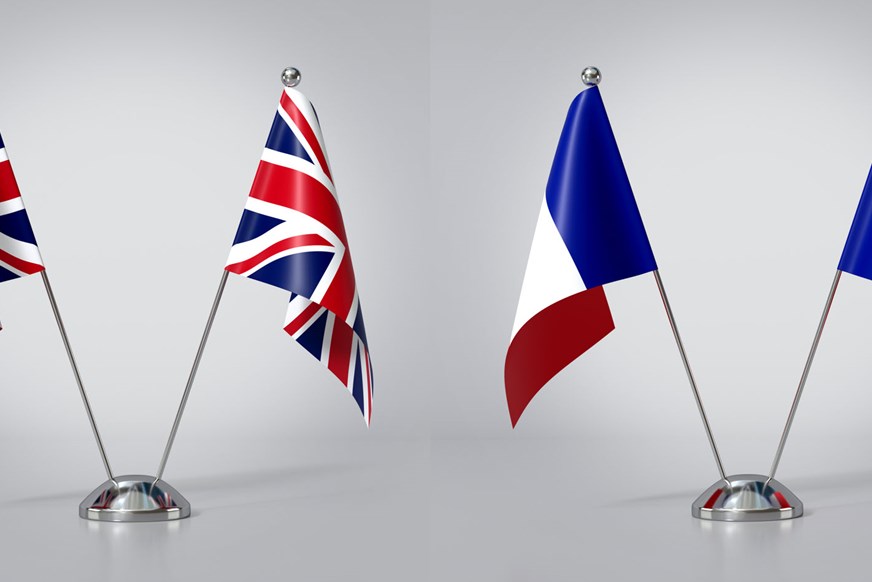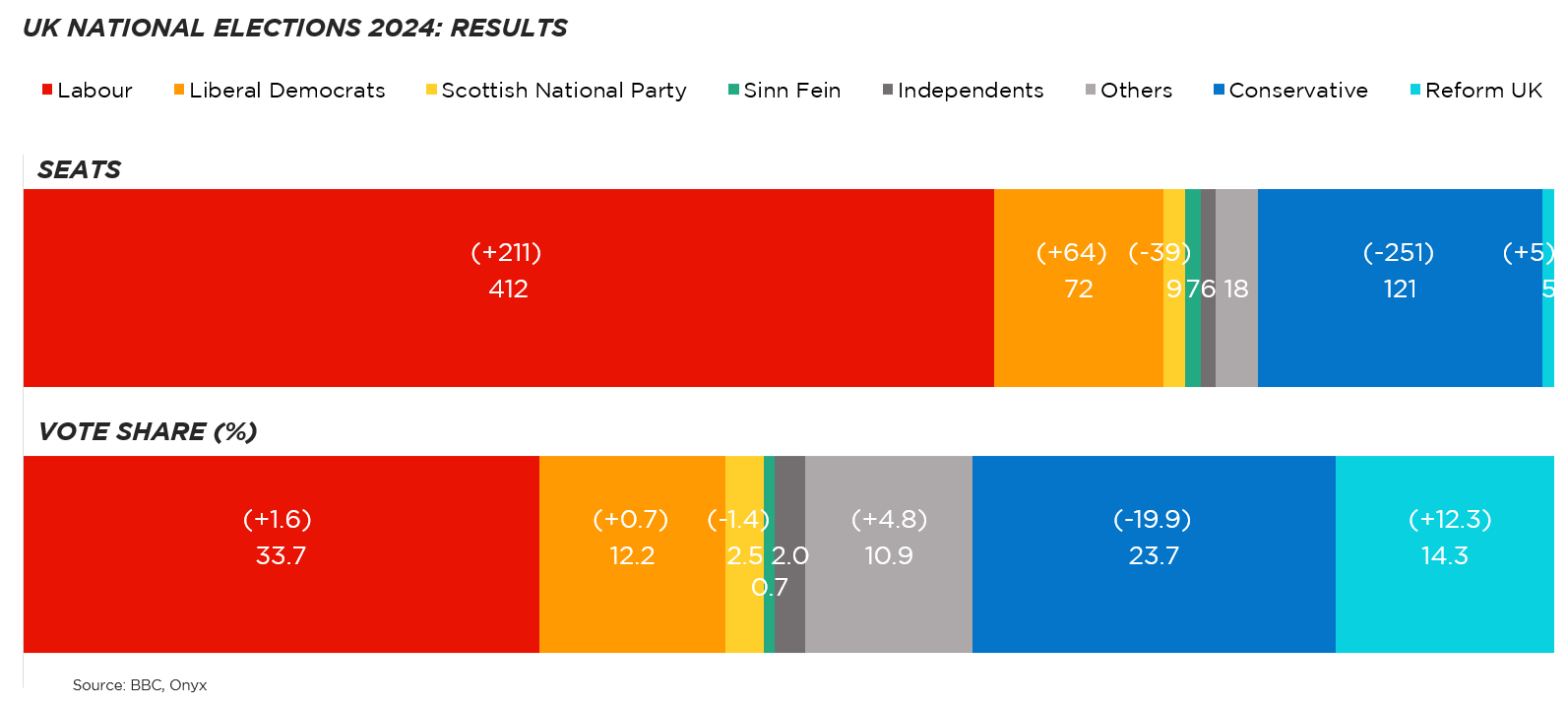
Search our articles
UK and France Elections 2024: Results and Aftermath

Key Insights:
- What is happening: National elections in the UK and France have resulted in a swing to the left in both countries. The comparisons end there.
- Why it matters: An overwhelming Labour majority puts the onus on center-left Prime Minister Keir Starmer to deliver on reforms to spur faster economic growth. In France, a hung parliament ends President Macron’s reform agenda and will make France largely ungovernable for the next three years. A weakened Macron may also quiet France’s voice in the EU but won’t drive massive changes to EU policy.
- What happens next: Companies with UK, French, and European operations should anticipate several policy shifts and keep a close eye on key issues. On trade and customs, expect some progress on UK-India and UK-GCC negotiations, a likely timeline advancement for the UK’s CBAM, and tweaks to the EU-UK trade and cooperation agreement. Election results in both countries point to growing support for industrial subsidies, though fiscal and political constraints will limit spending.
ANALYSIS
UK Election Results
As expected, the Labour party achieved a crushing victory in Britain’s July 4 general election with 412 seats. The results were a serious blow to outgoing Prime Minister Rishi Sunak’s Conservative party, who fell to its lowest seat tally since 1906.
The results are interpreted as a referendum on 14 years of Conservative rule, with discontent over Britain’s stagnating economic growth and deteriorating public services. The vote share breakdown shows a relative majority for Labour and substantial gains for smaller parties, especially the right-wing populist Reform UK.
Starmer will be expected to follow through on promises to raise investment, reform the planning system to facilitate construction, and fix the National Health Service (NHS). His main challenge will be a lack of money, given high public debt and promises to limit tax increases. Starmer will therefore focus on cutting red tape and cultivating government-business relations.

Expected trade policies
Starmer’s focus on growth-oriented reform translates to a pro-free trade agenda. Policy will focus on achievable wins. Labour’s manifesto seeks to finalize free trade agreements (FTAs) with India and the Gulf Cooperation Council (GCC), though key sticking points could thwart those efforts.
The new government will aim for a closer relationship with the EU, but due to political hurdles on both sides, expect minor tweaks to the trade and cooperation agreement (TCA) focused on phytosanitary checks.
Labour will likely keep many elements of the previous government’s proposed Carbon Border Adjustment Mechanism (CBAM) and advance the implementation timeline to closely follow the EU’s. With the EU’s CBAM fees beginning in 2026, the UK risks a flood of imports of steel, aluminum and other carbon-intensive goods from third countries if it holds off on implementation.
France Election Results
While the UK’s election paves the way for strong governance and a clear policy agenda, France’s points to upheaval. Macron’s snap election resulted in a significant drop in support for his centrist coalition. Both the far-right and far-left picked up seats. The left-wing New Popular Front now holds the most seats in parliament but fell short of a majority.
There are several scenarios for who will become prime minister. Under most scenarios, Macron will struggle to enact meaningful policies for the remainder of his presidency.
Impacts
The elections’ impacts on trade are limited, since France’s trade policy is set at the EU level. However, a weakened Macron will face greater challenges advancing France’s vision for EU trade – meaning power will shift toward the Commission and Commission President Ursula Von der Leyen.

Written by Onyx Strategic Insights

